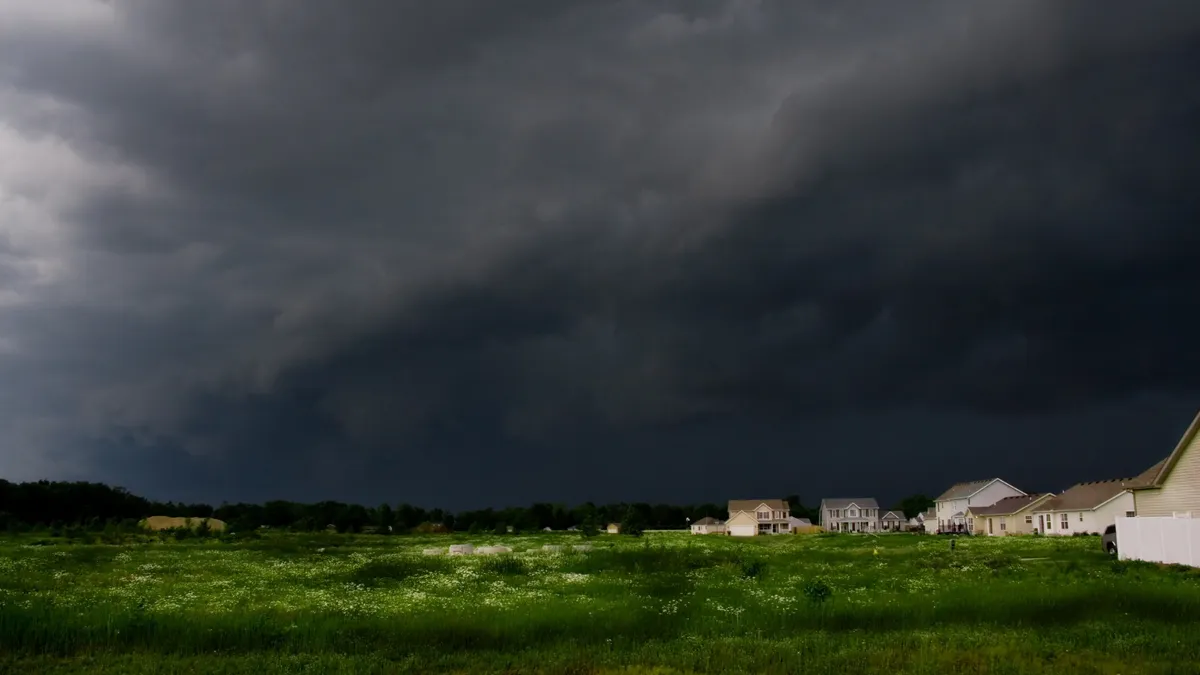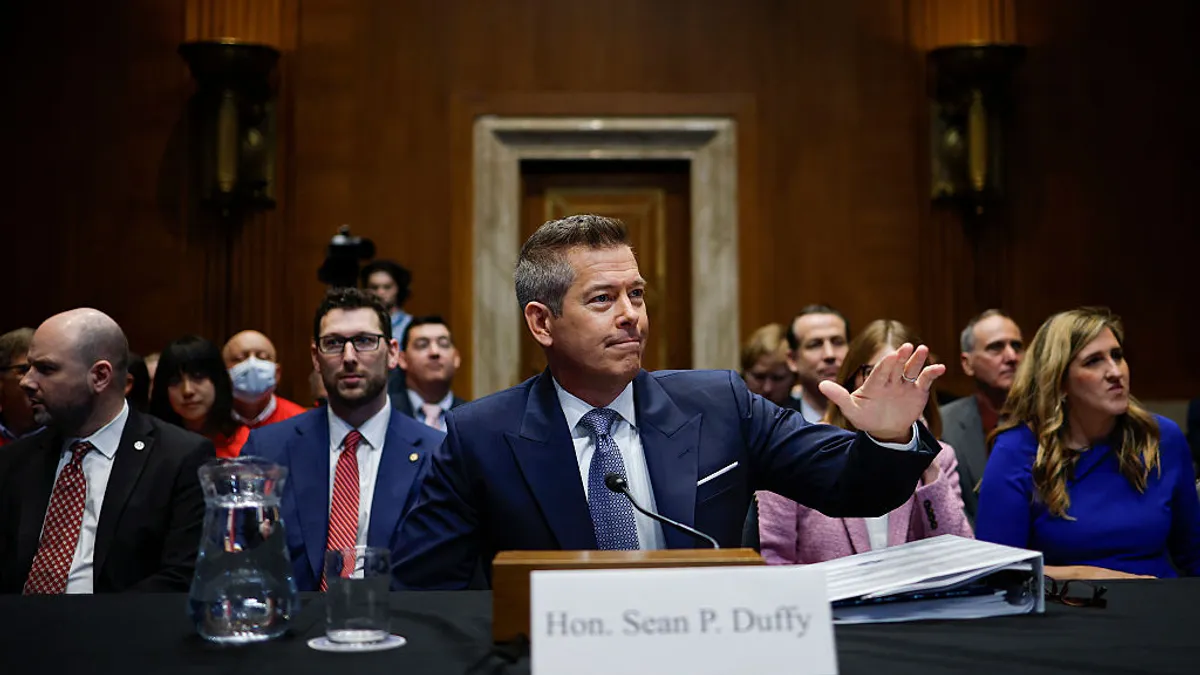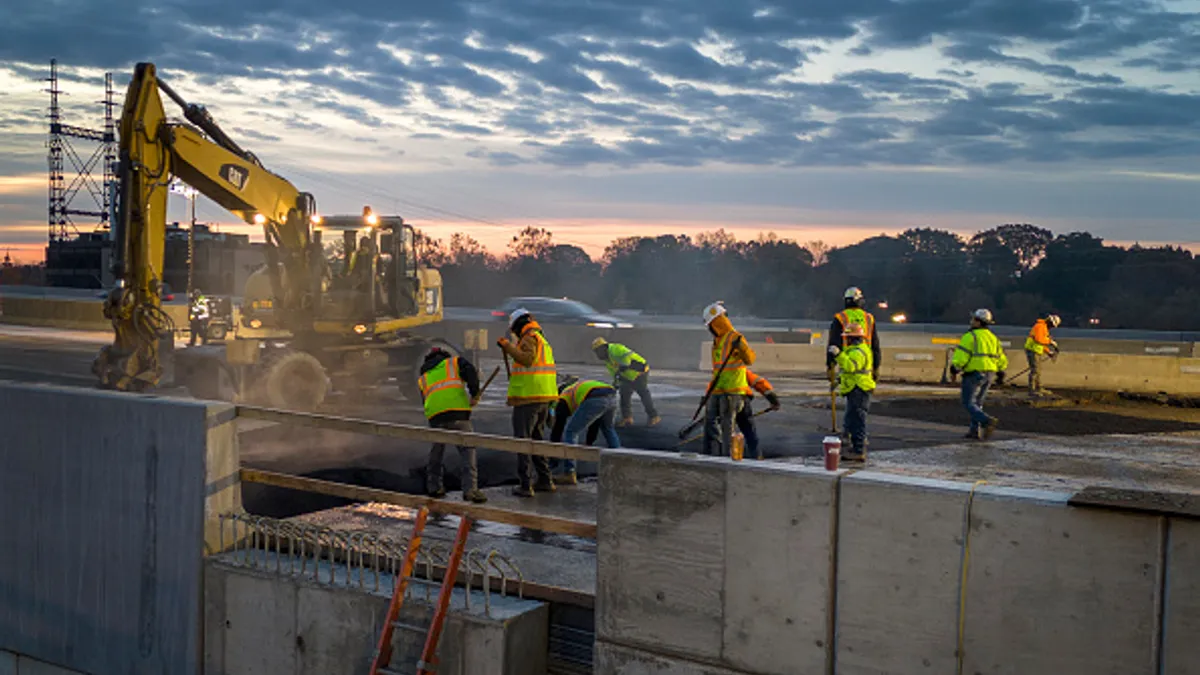Colorado, Texas, Missouri and other Midwest and Southern states are known for their heavy storms, bringing wind, tornadoes and hail. Increasingly, they're also becoming known for fraudulent roofing contractors, a phenomenon in which companies prey on homeowners following major storm events and take off with their insurance money.
In Missouri, "it's changed the landscape entirely," said Jason Shupp, president of St. Louis-based Ferguson Roofing and past president of the Roofing and Siding Contractors Alliance (RSCA), a regional association serving Missouri and parts of Illinois. "How any contractor goes to market has changed quite a bit."
Fraudulent storm chasers also generate a sense of urgency among homeowners that isn’t always necessary. "They have a sense that they have to move really quickly, which isn't always the case," Shupp said. That’s because this kind of “storm chaser” knows that they must close the deal quickly before the homeowner researches other options.
Another common tactic is the promise of waiving any applicable insurance deductibles and a cost-free roof. Many states, including Texas, have laws against contractors waiving or rebating deductibles.
It's important to note that not all "storm chasers" are rogues. “There are legitimate companies whose entire model is moving to where the work is," says Reid Ribble, CEO of the National Roofing Contractors Association (NRCA). If a big hail storm goes through Dallas, for example, there won't be enough local contractor capacity to meet heightened demand. There are legitimate companies that move across the country, providing a boost of labor as needed. Legitimate storm chasers set up shop in the area for several months, meet the local licensing criteria and carry insurance.
But there’s another class of contractor that is unlicensed, uninsured and under the radar. They often walk door to door, collecting deposits or taking control of insurance claims and then disappearing. And it’s those operators that lawmakers and fellow contractors are trying to stop.
Regulations vary
One challenge for consumers and contractors alike is there is no national governance over roofing contractors. Requirements are different in every state and even local jurisdictions — some may require a license, others a registration, and still others have no requirements at all.
In addition to those differences, insurance requirements vary by state. Some require a homeowner to have the work completed within a certain number of months after the damage has occurred, even if some repairs can wait until after contractor demand has died down.
The insurance claims process has shifted, says Steven Badger, partner at Dallas law firm Zelle LLP. Before, if a roof was damaged, the homeowner called the insurance company, an adjuster came out to do an evaluation, the homeowner hired a local contractor and the roof was replaced. With that process, most insurance claims were amicably resolved, he said.
Today, however, illegitimate “storm chasers” inject themselves into the process alongside a rising number of public adjusters, who put claims submissions together, and a growing stock of plaintiff's lawyers. That means more claims end up in a lawsuit. (Badger says that’s the case for as many as one-third of hail claims in Texas.) Often, insurance companies will settle even the frivolous lawsuits because it's less expensive than going to trial. Settlements, in turn, can drive up insurance costs. The increase in lawsuits has some insurance companies restricting coverage for hail damage and even leaving certain markets, he said.
"By having some form of licensing and consumer protection regulation, we believe we can root out some of these bad actors and encourage Texas consumers to only sign up with reputable contractors."

Steve Badger
Partner, Zelle LLP
The Texas legislature has recently enacted new requirements to address abuses in the litigation area – but not the illicit work of illegitimate contractors. That could soon change. In March, legislators introduced a bill that would create a voluntary certification for roofing companies, which would help consumers select contractors.
Seeing firsthand the abuses occurring in Texas, Badger has been one of the biggest local supporters of such initiatives, going door to door in the Texas State Capitol to advocate for registration and certification requirements that would protect local consumers and businesses. The legislation, which had broad support from leading roofing industry trade groups, was left pending in a House committee, essentially quashing it for the session. Badger expects the issue to be raised again in the next session.
"This is a significant consumer protection issue where homeowners are getting ripped off all across Texas, but unfortunately our legislature will not act to protect homeowners from this problem," Badger said. "By having some form of licensing and consumer protection regulation, we believe we can root out some of these bad actors and encourage Texas consumers to only sign up with reputable contractors."
The Texas Public Policy Foundation, a nonprofit described as promoting personal responsibility and free enterprise, called the bill "unnecessary and an improper expansion of government," saying that there are already ample resources through which consumers can evaluate contractors, such as the Better Business Bureau and Yelp.
Other states are working on similar legislation. Kentucky recently passed a bill that protects homeowners against contractors who inflict further damage on a roof in order to expand the scope of work.
In 2013, Kansas enacted legislation that requires roofing contractors to register with the state. A year prior, Colorado passed legislation requiring a contract between the contractor and owner for all residential work over $1,000. Among its provisions is a prohibition against the contractor acting as a public adjuster unless licensed to do so.
Missouri doesn't currently require registration or licensing for roofing contractors, a detail Shupp is hoping will change with time. Legislation to create a voluntary registry of roofers was under consideration during the state’s 2017 legislative cycle. Despite the RSCA’s efforts, the bill ran out of time before it could be considered.
Strategies for contractors and consumers
“Real roofing contractors who actually put on roofs for a fair price ought to be concerned about the damage these interlopers are doing to their industry,” Badger said.
Indeed, fraudulent actions by traveling storm chasers can reflect negatively on roofers everywhere. "The good contractors now have to spend part of the sales and marketing process reestablishing the credibility" of the whole industry, Shupp said.
Building pros can be proactive by educating homeowners on the dangers of fraudulent non-contractors long before the storms come. One way for contractors to do so is by maintaining personal or business memberships in local and national associations, which lends verifiable credibility.
For example, RSCA members in Missouri and Illinois must follow a code of ethics, been in business for three years and have insurance. Similarly, members of the Colorado Roofing Association must have been in business for two years, sign a code of ethics and carry liability protection of at least $500,000, among other requirements. The Roofing Contractors Association of Texas has established its own licensing program, hoping to provide a way for its members to distinguish themselves from dishonest storm chasers.
"It's a feeding frenzy after a storm when contractors come in and consumers don't always know who they're buying from."

Reid Ribble
CEO, National Roofing Contractors Association
When it comes to evaluating roofing contractors, remodelers and consumers alike should do their research. Request initial recommendations from trusted sources, ask the contractor for references and follow up with them. Distributors are another good source for qualified installers. Local and regional roofing associations often have member directories and lists of licensed contractors in the area.
"Using someone your neighbor or family or friends have used is the safest, most direct route to not getting scammed by someone who is operating illegally," Ribble said. Ask for their license and insurance. While some states do not require a license, every legitimate contractor will have insurance.
"It does require a certain level of due diligence," Ribble said. "It's a feeding frenzy after a storm when contractors come in and consumers don't always know who they're buying from."




















